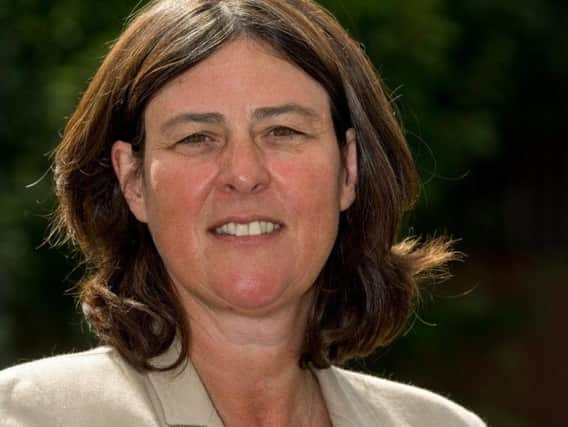Threat to future of mental health 'places of safety' to keep people out of police cells, North Yorkshire police tsar warns


Police, Fire and Crime Commissioner Julia Mulligan spoke out after the police inspectorate yesterday warned that forces were being left to pick up the pieces of a “broken” mental health system.
The NHS-funded facilities, called Section 136 suites, are used to house people detained by the police under the Mental Health Act to prevent them having to go into cells.
Advertisement
Hide AdAdvertisement
Hide AdBut of four centres opened across North Yorkshire since 2012, one is closing, another has halved its capacity and a third is under threat of closure, Mrs Mulligan claimed.
She said she was “extremely concerned” at the situation and had written to Ministers.
She said: “When I first came into post six years ago, North Yorkshire was the only area in the country to have no specialist health-based places of safety.
“Four were opened – now Northallerton is set to close, Harrogate is under threat and York’s provision has been halved. I cannot square the circle – the Government is committing more money, yet services locally are being seriously cut back.
Advertisement
Hide AdAdvertisement
Hide Ad“This issue needs urgent attention and I need real reassurance that plans going forward are sufficient to meet the needs of some of our most vulnerable people.”
Mrs Mulligan, a Conservative, said she noted that the Government had pledged more money to mental health services but said she was “not seeing any demonstrable improvement on the ground”.
The suite at Friarage Hospital in Northallerton will close on January 1, following a consultation by the Hambleton, Richmondshire and Whitby Clinical Commissioning Group (CCG).
A spokeswoman for the NHS Harrogate and Rural District CCG said at present there were "no agreed proposals to close" Harrogate's Section 136 suite.
Advertisement
Hide AdAdvertisement
Hide AdShe said: "We are currently working in partnership with Tees, Esk and Wear Valleys NHS Foundation Trust and engaging with the local community to explore what future community mental health services could look like for the local population.
"As part of this wider engagement we will be engaging with the Police and Crime Commissioner (PCC) on the future model of provision and actively working with the PCC in her role as co-chair of North Yorkshire Crisis Care Concordat."
In York, a facility at the now-closed Bootham Park Hospital has since been replaced by a new suite at Peppermill Court.
However, the NHS Vale of York CCG disputed Mrs Mulligan's claim that the provision had reduced from two beds to one, saying it had always accommodated just one person.
Advertisement
Hide AdAdvertisement
Hide AdA spokesman said: "Section 136 mental health suite capacity in York, at Peppermill Court, has not been halved.
"The suite has been a one-bed, and therefore one person, facility since it opened and remains so. This facility replaced the one at Bootham Park Hospital, where the CCG commissioned a one bed/one person section 136 mental health suite until the hospital closed in 2015.
"Section 136 mental health suite provision in York has always been for one person and remains so now."
The Government has said it is investing £2bn in mental health services, including community crisis services.
Advertisement
Hide AdAdvertisement
Hide AdYesterday, HM Inspector of Constabulary Zoe Billingham warned stretched police forces are responding to tens of thousands of cases that would be better dealt with by other agencies.
“We cannot expect the police to pick up the pieces of a broken mental health system,” she said.
The warnings come as a new poll reveals a third of teenagers have thought about harming themselves.
The survey, conducted by the charity Addaction, found that 33 per cent of young people aged 13 to 17 had thought about self-harm. This includes 6.1 per cent who think about it “all or most of the time”.